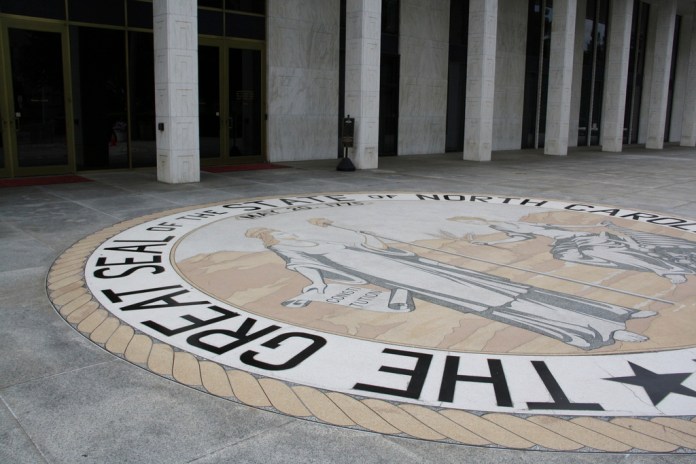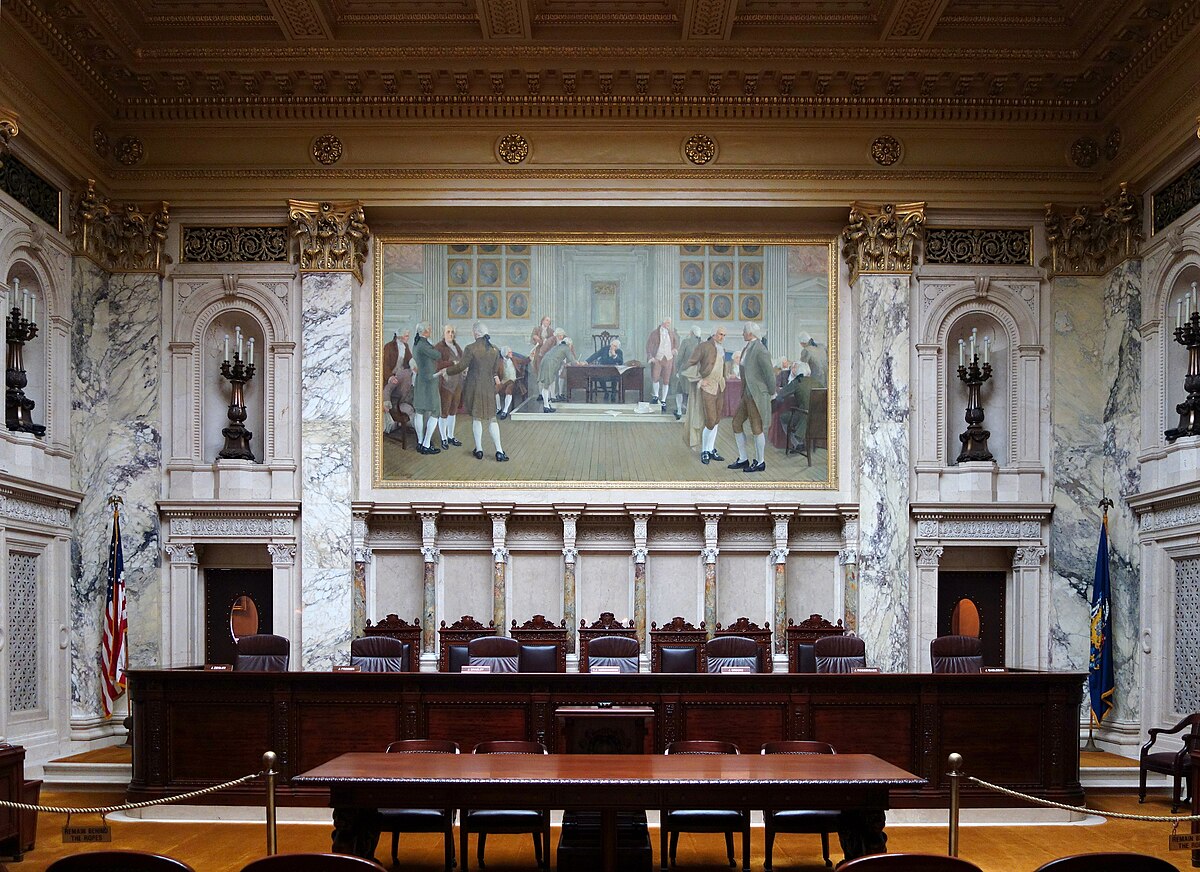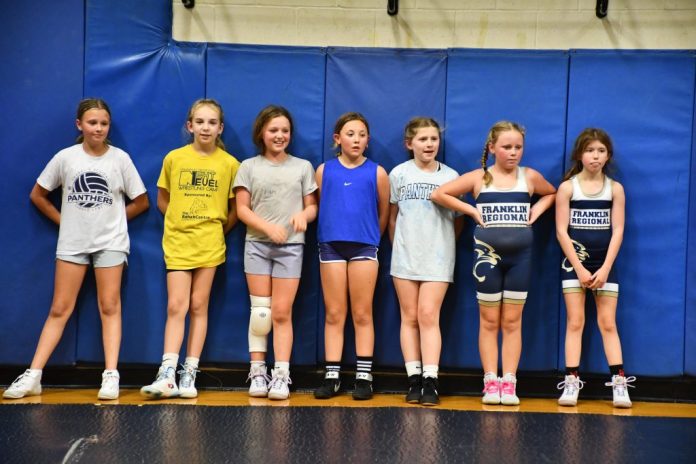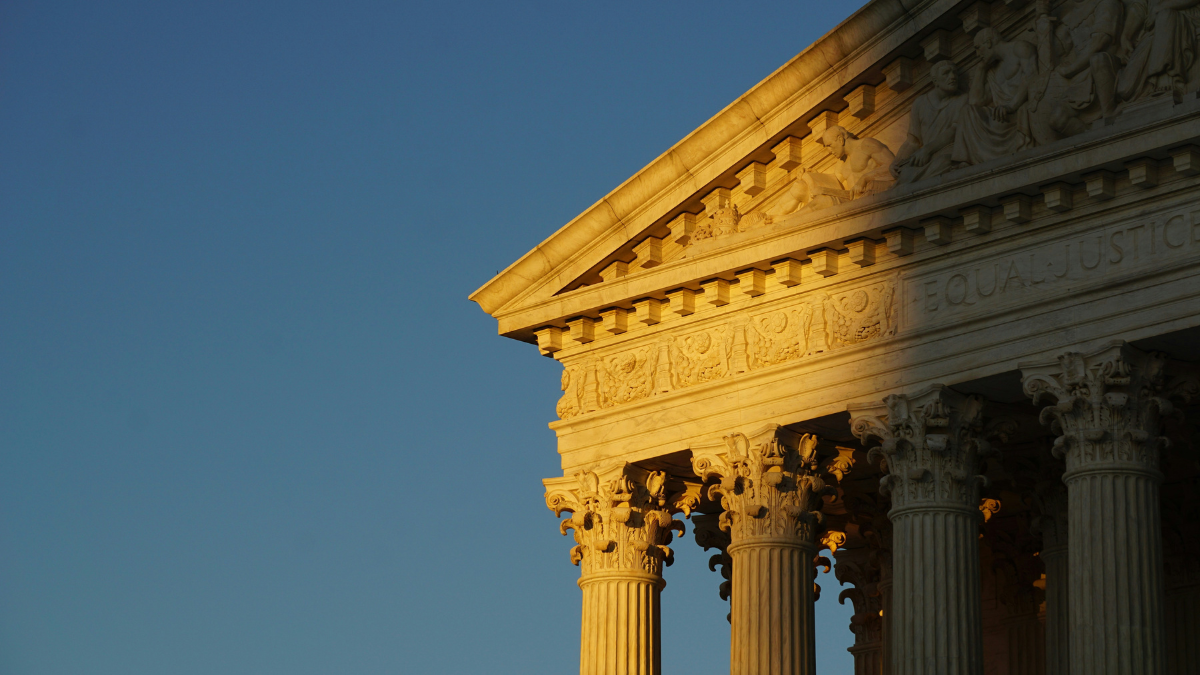SCOTUS Signals Support For First Public Religious Charter School
In a recent supreme Court hearing, a majority of justices showed support for establishing the first public religious charter school in the United States, specifically the St. Isidore of Seville Catholic Virtual School. This issue arose after the Oklahoma Statewide Charter school Board entered into a contract with the school in fall 2023, sparking a lawsuit from Oklahoma Attorney General Gentner Drummond, who argued that the state’s sponsorship of a religious charter school violated the Oklahoma Constitution and the establishment clause of the U.S. Constitution. The Oklahoma Supreme Court ruled in favor of Drummond, nullifying the contract.
The Trump Justice Department filed an amicus brief supporting St. Isidore, and during the Supreme Court proceedings, justices questioned both sides intensely. Democratic appointees, including Justice Sonia Sotomayor, raised concerns about the implications of allowing religious schools to operate as public charter schools, particularly regarding curriculum content and potential discrimination against different belief systems. conversely, Republican appointees, including Justice Brett Kavanaugh, expressed sympathy for St. Isidore’s position, arguing against the discrimination of religious institutions in charter school approval processes.
the case highlights significant tensions between religious freedom and separation of church and state principles, as justices grapple with potential implications for future religious public education across the nation. Chief Justice John roberts appeared to remain neutral yet open, suggesting the possibility of a narrow interpretation favorable to St. Isidore. The outcome of this case could shape the landscape for religious charter schools in the U.S.
A majority of U.S. Supreme Court justices signaled their support for allowing the establishment of the country’s first public religious charter school on Wednesday.
The matter first came to fruition in fall 2023, when the Oklahoma Statewide Charter School Board entered into a contract with St. Isidore of Seville Catholic Virtual School. According to The Federalist Society, the agreement made the latter the “first religious public virtual charter school in the nation.”
This prompted Oklahoma Attorney General Gentner Drummond, a Republican, to sue the Statewide Charter School Board in the state Supreme Court, in which he alleged that the board’s sponsorship of St. Isidore is “unlawful” because “Oklahoma’s Constitution disallows sectarian control of its public schools and the support of sectarian practices — indirect or otherwise.” The Sooner State’s high court agreed with Drummond, nullifying the contract on the grounds that it violated the Oklahoma Constitution and the U.S. Constitution’s establishment clause.
The Trump Justice Department filed an amicus brief with SCOTUS in support of the school last month. U.S. Solicitor General John Sauer represented the administration during oral arguments before the high court on Wednesday.
St. Isidore is seeking the votes of at least five justices to overturn the Oklahoma Supreme Court’s decision — an objective made more difficult by Associate Justice Amy Coney Barrett’s recusal from the case. Should the justices deadlock in a 4-4 vote, the Oklahoma high court’s ruling would stand.
During Wednesday’s hearing, plaintiffs faced intense grilling from SCOTUS’s Democrat appointees.
Associate Justice Sonia Sotomayor probed the board’s counsel, Alliance Defending Freedom’s Jim Campbell, on the implications of the board’s sponsorship of St. Isidore. She specifically inquired about the curriculum of prospective religious schools and posed a hypothetical question about how the board would handle such institutions that don’t “want to teach evolution” or “history, including the history of slavery,” or “doesn’t want to include having children of another faith” in their schools.
As acknowledged by Sotomayor, Campbell noted that St. Isidore doesn’t require prospective students to sign a statement of faith to attend the school and added that the institution allows “exceptions” for students who do not wish to attend Mass. This prompted Associate Justice Elena Kagan to follow up with a hypothetical of her own, asking if Campbell’s response would differ if there were a school that “insist[s] on a statement of faith.”
“I think the argument and analysis would be different because this case involves a categorical religious exclusion and facial religious discrimination. So, under this court’s precedent … we have a lack of neutrality on the face of the law, so we go straight to strict scrutiny, and strict scrutiny isn’t satisfied here because respondent only has anti-establishment clause interests that have been rejected by this court in cases like Carson,” Campbell said.
Meanwhile, many of the high court’s Republican appointees appeared sympathetic to plaintiffs’ arguments.
Associate Justice Brett Kavanaugh, who seemed most favorable to St. Isidore’s case, emphasized in his questioning of Sauer that the government “can’t favor one religion over another in approving or allowing charter schools.”
“The state can’t favor religion, generally, over secular counterparts in allowing or approving charter schools as well. In other words, if it has charter schools, it must allow secular and religious, correct?” asked Kavanaugh, to which Sauer replied, “Correct.”
When later questioning Gregory Garre, who argued the case on behalf of Drummond’s office, Kavanaugh suggested that the state’s exclusion of St. Isidore from the charter program “seems like rank discrimination against religion.”
“If you go and apply … to be a charter school and you’re an environmental studies school or you’re a science-based school or you’re a Chinese immersion school … you can get in. And then you come in, and you say, ‘Oh, we’re a religious school.’ It’s like, ‘Oh no, can’t do that.’ …” Kavanaugh said. “Our cases have made very clear … you can’t treat religious people and religious institutions and religious speech as second-class in the United States. And when you have a program that’s open to all comers except for religion … that seems like rank discrimination against religion, and that’s the concern that I think you need to deal with here.”
Associate Justice Samuel Alito took Garre to task over arguments made by Drummond, who previously wrote, “While many Oklahomans undoubtedly support charter schools sponsored by various Christian faiths, the precedent created by approval of [St. Isidore’s] application will compel approval of similar applications by all faiths. I doubt most Oklahomans would want their tax dollars to fund a religious school whose tenets are diametrically opposed to their own.” The associate justice questioned Garre over whether the state’s case against St. Isidore bears resemblance to the Masterpiece Cakeshop incident, in which Colorado cake artist Jack Phillips was sued for declining to create a wedding cake for a same-sex couple due to his Christian beliefs.
“Isn’t that a very serious Masterpiece Cakeshop problem? This whole position that you’re defending seems to be motivated by hostility toward particular religions,” Alito asked.
Garre denied Alito’s characterization of Oklahoma’s arguments and the comparison to Phillips’ case, arguing that Drummond was “making a point … that once you open up government programs and bring people in to becoming part of the government and approve one religion, now another religion, or this religion, there’s gonna be strife that comes from that.”
Associate Justices Clarence Thomas and Neil Gorsuch also appeared inclined to favor St. Isidore and the state board in the matter.
[READ:[READ:Here’s The Federalist’s Guide To This Year’s Biggest Supreme Court Cases]
While seemingly less vocal than his colleagues, Chief Justice John Roberts, who is seen as a pivotal swing vote, also appeared open to allowing St. Isidore to become the nation’s first public religious charter school.
The Bush appointee pressed Garre on the issue of religious discrimination, citing the 2021 Fulton v. City of Philadelphia case. In that matter, SCOTUS determined that Philadelphia’s decision to prevent a Catholic social services organization from placing foster children in foster homes due to its faith-based policy of declining to home children with same-sex couples violated the First Amendment’s free exercise clause.
Roberts asked Garre how that case differs from Oklahoma’s against St. Isidore, saying, “You have an education program, and you want to not allow them to participate with a religious entity.”
Claiming the two cases are “fundamentally different,” Garre argued that Oklahoma’s position doesn’t “threaten faith-based contractors at all,” and that the “adoption agency in Fulton wasn’t established by the state through legislative action; it wasn’t fully funded by the state; it wasn’t controlled by the state.”
Shawn Fleetwood is a staff writer for The Federalist and a graduate of the University of Mary Washington. He previously served as a state content writer for Convention of States Action and his work has been featured in numerous outlets, including RealClearPolitics, RealClearHealth, and Conservative Review. Follow him on Twitter @ShawnFleetwood
" Conservative News Daily does not always share or support the views and opinions expressed here; they are just those of the writer."




